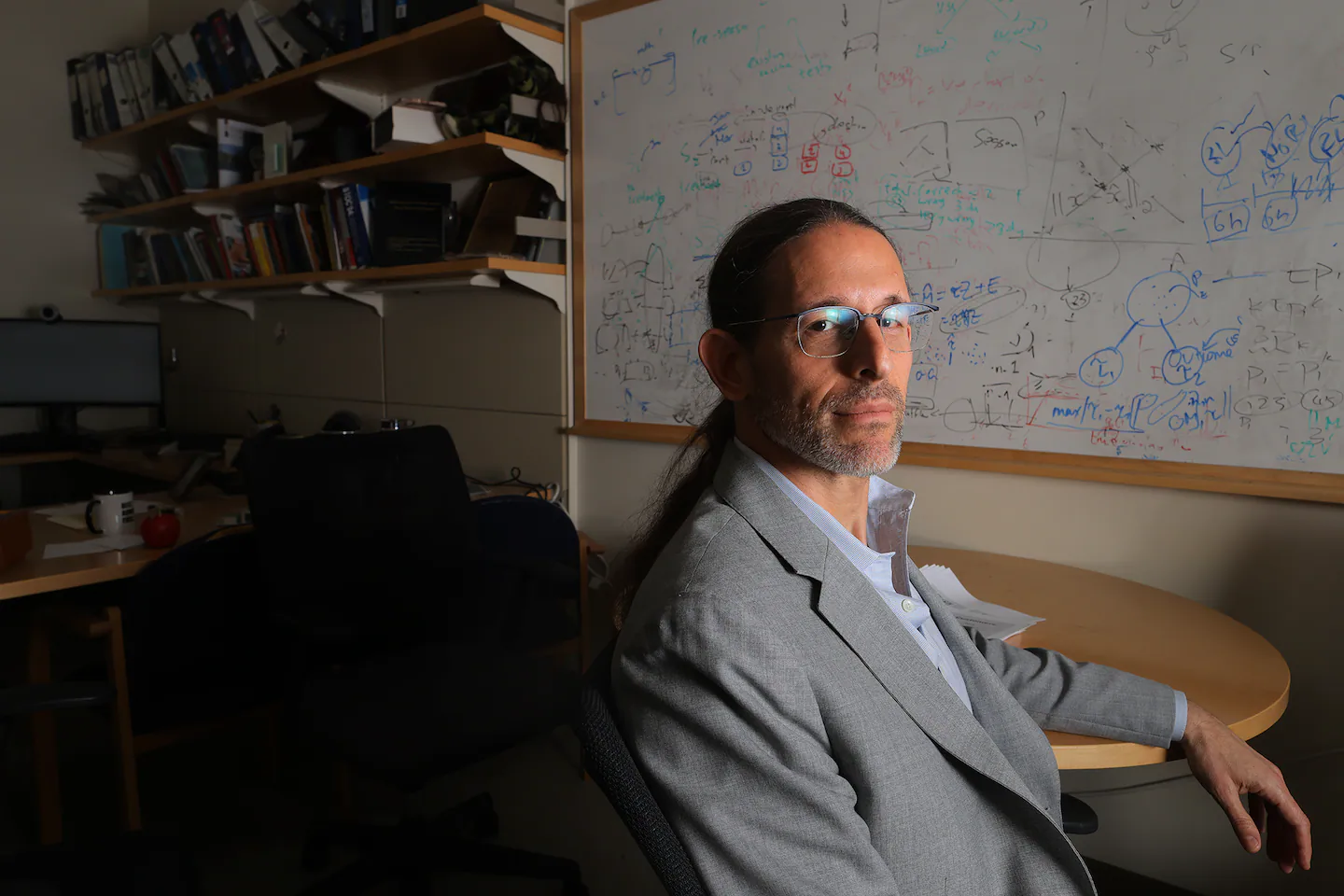Copyright The Boston Globe

The move signaled what people at MIT already know about Levi, who’s a specialist in analyzing risks: He’s not afraid of conflict. He welcomes it. He seeks it. Sometimes, he stirs it. And now, he’s holding his ground in the turbulent, swirling center of it. Over the summer, Levi became one of the most influential people in public health when he was appointed to the advisory committee that makes vaccine policy recommendations to the Centers for Disease Control and Prevention, and later chosen to lead the COVID-19 subgroup. He may not be a household name, but Levi is already impacting how every household in the United States will access vaccines, and it couldn’t be at a more consequential time. Since the outbreak of the pandemic in 2020, public health has become a political battleground, where each side is accusing the other of gaslighting and enabling government corruption. The biggest casualty of all is the waning trust of the American people. Levi, 54, is in a prime position to rebuild that trust, or shatter it. He’s an unlikely choice to join a committee whose members typically have clinical or scientific expertise in immunization. But as a data scientist and former intelligence officer in the Israeli military, he’s made a career out of studying risky business — including uncertainty in the pharmaceutical industry and health care management — and he’s not one to back down from a challenge. On a recent afternoon in his office at the Sloan School of Management, he calmly discussed his guiding philosophy on vaccines. “I think there are currently two religions,” he said, sinking into a chair near an array of Israeli chocolate bars. “There is one religion that says no vaccine is good for anybody, and there is another religion that says every vaccine is good for everybody, every time. “My take,” he continued, “is that I’m going to think about every vaccine — and the risk and benefits of these vaccines — with respect to different people with different risk profiles.“ Levi said he aspires to find “the nuanced science-driven ‘middle’” between vaccine skeptics and believers. And as a risk analyst who leaves a margin for uncertainty, he won’t rest until he examines every piece of evidence and overturns every assumption in the name of his higher calling: data science. But many in public health fear he is an agent of discord sowing further confusion and division in service of an anti-vaccine bias. This is a man who once called mRNA COVID-19 vaccines “the most failing medical product in the history of medical products,” despite an early estimate that the vaccines saved nearly 20 million lives worldwide. “We know his stance on COVID vaccines. He’s told us his stance on COVID vaccines," said Jess Steier, who writes the Substack “Unbiased Science.” “So he’s coming into this with very clear and well-documented bias.” He regularly airs his grievances on X about vaccines, Israel-Gaza, and MIT’s top brass, and he’s just as comfortable discussing everything else, from his own personal health regimen (low-carb diet and daily CrossFit) to politics. “I refuse to submit myself to one set of positions across the board,” he said. Notably, his onboarding with the United States government comes in a season of chaos at the CDC marked by mass layoffs, outraged resignations, gun violence at agency headquarters, and the ousting of former director Susan Monarez. Setting much of it off was Health Secretary Robert F. Kennedy Jr.’s purging of the Advisory Committee on Immunization Practices. In June, Kennedy fired all 17 members and appointed Levi and Robert Malone — a former mRNA researcher who has come under fire for spreading vaccine falsehoods — among the panel’s new members. The shakeup prompted instant outrage, though Levi’s particular appointment was met more with head-scratching. “What does he know about vaccines?” asked a Wall Street Journal editorial. Levi’s colleague Yossi Sheffi, an engineering professor at MIT, challenged that framing in a letter to the editor. “The members of ACIP don’t develop vaccines,” Sheffi wrote. “They are charged with assessing their safety and efficacy. That is done through statistics and data science, areas in which Mr. Levi excels.” Immunization specialists say there’s already extensive data supporting CDC-endorsed vaccines and that rigorous safety processes have been in place since the 1990s. Being skeptical has always been part of the job of vaccine regulators and advisers, said Paul Offit, a leading vaccine expert who has served in both capacities. “We all want to hold these vaccines to the highest standard of safety and efficacy: ‘Prove it — prove that your vaccine is what you say it is.’” But Levi insists more information is still needed about mRNA COVID vaccines, citing concerns about vaccine injuries and the long-term impact of seasonal boosters on the immune system. According to Malone, it was the “protracted disagreement” Levi had with a top CDC official about whether the COVID task force was “going to be allowed to be autonomous” in its explorations that triggered talks with government attorneys and preceded the infamous face-off between Kennedy and Monarez that led to her termination. “I don’t know what went on in that conversation with Bobby, but Retsef was on the tip of the spear saying, ‘No,’” Malone said. This month, the CDC signed off on new guidance that supporters see as a victory for ushering in a new era of “medical freedom,” and that opponents see as a loss for public health — one that’s already causing widespread confusion about where and how to get vaccines. The advisory committee last month backed away from advising all adults and children receive the COVID-19 vaccine and instead recommended that COVID vaccination be determined by individual decision-making based on consultation between people and their health care providers. Several public health experts said they are now bracing for the worst. “It’s like ‘1984,’” Offit said — and in this alternate reality, Levi is calling the shots. “I think he has the capacity to make a terrible recommendation for public health.” On campus, Levi has a reputation as an “anti-vaxxer,” said former MIT graduate student Dan Zeno, and for “antagonizing” students in the pro-Palestinian movement following the Oct. 7, 2023, Hamas attacks on Israel. That November, a Change.org petition to fire Levi from MIT collected more than 5,000 signatures. Others who know Levi paint a picture of a family man with six kids, four dogs, and an open door. During Passover, “Retsef’s house in the Seder looks like Central Station in New York during the rush hour,” Sheffi said. Talia Khan, an MIT graduate student, acknowledged Levi can be “very polarizing,” but “he’s also very gracious and willing to engage with people who disagree with him.” “Retsef is one of the few people at MIT who speaks truth to power, to any power,” Sheffi said. “Now, he may be wrong, but you always know where he’s coming from.” Levi is, by all accounts, a bit of an outlier. He jokingly calls himself “the black sheep” of his childhood family. Two of his brothers, Reshef Levi and Yannets Levi, are well known in Israel as a stand-up comedian and children’s book author, respectively. The eldest of six, Retsef Levi was raised in a small town near Tel Aviv. His Polish maternal grandparents were Holocaust survivors who moved to Israel in 1950. His father, of Yemeni descent, grew up in poverty and as a teenager joined the notorious Jewish underground group Lehi, which fought the British authorities in Palestine. He later became a journalist. “I’m the first person to finish high school in the family,” Levi said. After studying math and operations research at Tel Aviv University as part of his service with the Israel Defense Forces, he learned Arabic, joined the intelligence corps, and climbed the ranks to major. With his cascading ponytail and wire-rimmed glasses, these days Levi looks more like a chapbook poet than a former IDF officer. He’s been at MIT for two decades and often opens the semester by talking about his hair, which he started growing out after nearly 12 years of military cuts. “There’s nothing mysterious” about his ponytail, he said. “It’s mostly being just lazy.” But there’s something else it signifies. “My life story: I do not fit boxes.” That includes the “anti-vaxxer” box, he said. Levi said he took the first two COVID doses and “never had any hesitation” about vaccines until 2021, when it was announced two top vaccine regulators would leave the Food and Drug Administration amid concerns the agency was being pressured to authorize boosters without sufficient data. “Let’s say you are on a flight that is about to take off, and the pilot suddenly sees a blinking bulb,” Levi said. “What would you prefer the pilot say? ‘Oh, I don’t know for sure that there’s a problem with the plane, let’s just take off,’ or — ‘Wait a second, I need to make sure this is not a sign of trouble.’”



